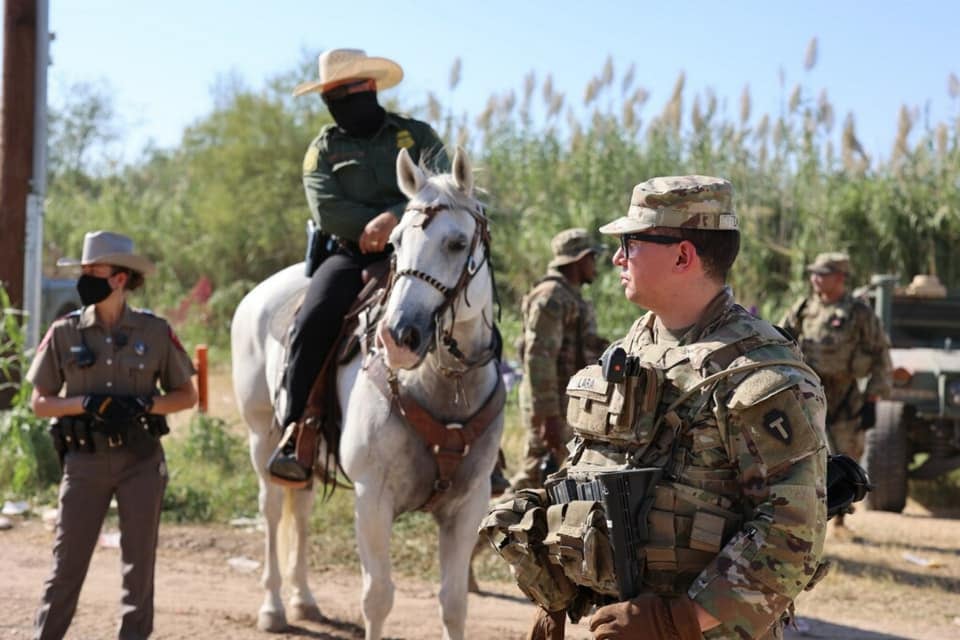Texas has long been one of the best states for veterans and a key part of that success is the Texas state government’s commitment to service members, veterans, and military families. In fact, just this year Speaker Dade Phelan presided over one of the most pro-veteran legislative sessions in recent memory, with massive strides taken on education, workforce training, and mental health treatment.
Unfortunately, the work done this session to support the Texans who have received their DD-214 does not extend to those actively deployed to our southern border for Operation Lone Star.
The string of suicides in the closing months of 2021 is a clear reflection of the hardship endured by the 10,000 soldiers stationed along the Rio Grande. However, their hardship is not the result of a cunning, deadly enemy or a dangerous foreign environment. No, it is the result of a failure in government: inconsistent paychecks, canceled education aid, and a mission with indefinite, involuntary activations for an operation whose purpose is unclear and whose activities are ineffective.
Just days before Christmas Eve, the Army Times reported that four guard members had taken their own lives over the course of two months. Shortly after, we learned that in the week between Christmas and New Year’s, a soldier accidentally shot and killed himself while another survived a suicide attempt. All of these casualties came on the heels of more questions raised about pay issues, benefit cuts, and leave restrictions that were all roundly ignored.
It should go without saying that the commander in chief of the Texas National Guard, our governor, should step beyond simple platitudes and instead vow to do everything in his power to prevent these deaths. And maybe that is his intention, but so far he has refused to take action or responsibility.
Due to this inaction, we are seeking answers.
We have submitted formal letters to the governor, the House General Investigations chairman, and the Texas Military Department asking for investigations into the suicides, recommendations on how to legislatively resolve the administrative failures of the operation, and a moratorium on additional deployments until such investigations conclude and recommendations are made.
- One asks Chairman Matt Krause of the House Investigations Committee to begin a formal inquiry into the suicides and the morale crisis on the ground in Operation Lone Star.
- Another, addressed to the Texas Military Department, seeks information regarding Operation Lone Star and recommendations to the legislature for how to resolve the numerous issues related to housing, pay, benefits, and leave.
- Finally, a letter directly addressed to the governor demands a moratorium on further troop deployment until the House of Representatives completes its investigation and asks the Governor to release his plan to address the Operation Lone Star morale crisis.
We feel this action is necessary to get answers about Operation Lone Star. We are past the point of empty words and symbolic gestures. It is the governor’s power to direct the Guard as he sees fit, but it’s clear that a rushed deployment of 10,000 Guard members has created a significant undue burden on them and their families, and resulted in tragic harm.
It should not be controversial to expect more from our state’s leaders. Nor should we allow those leaders to claim credit for the success and run for cover to avoid blame for failures. No person and no institution is perfect. But these suicides were tragic and avoidable. Public recognition, a commitment to fix the administrative failures, and a defined clear mission on the border are the very least that we owe our men and women in uniform, their families, and the citizens of our state.
Alex Dominguez is a state representative from Brownsville, Texas, and secretary of the House Veterans Caucus. He was named a veteran champion in 2021 and serves as vice chair of the Committee on Local and Consent Calendars, vice chair of the Committee on Environmental Regulation, and serves on two subcommittees on the House Appropriations Committee.
Steven Davidson served as a sergeant in the U.S. Army, and was named the Army Times Soldier of the Year in 2012; he served at the White House and in the U.S. Department of Energy before returning home to Texas where he has been instrumental in the passage of key legislation helping veterans transition to civilian life.




